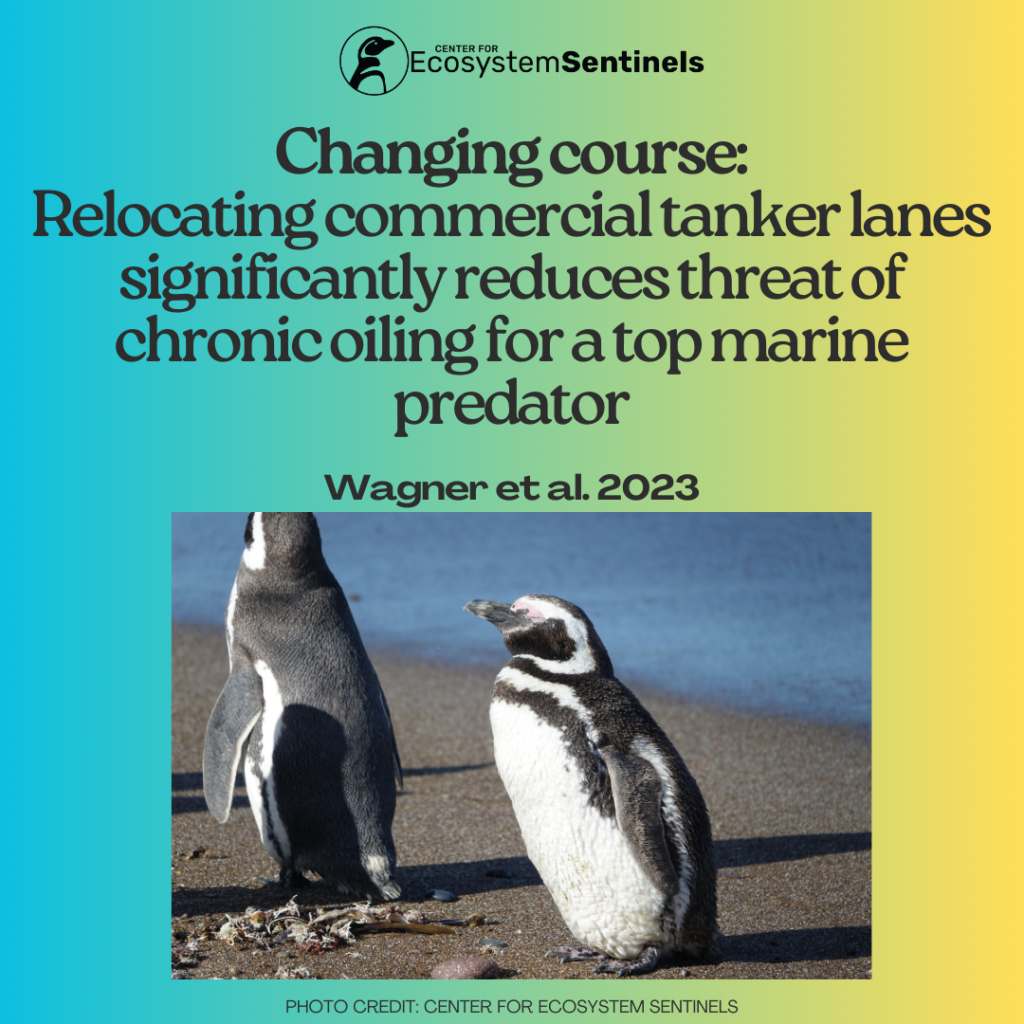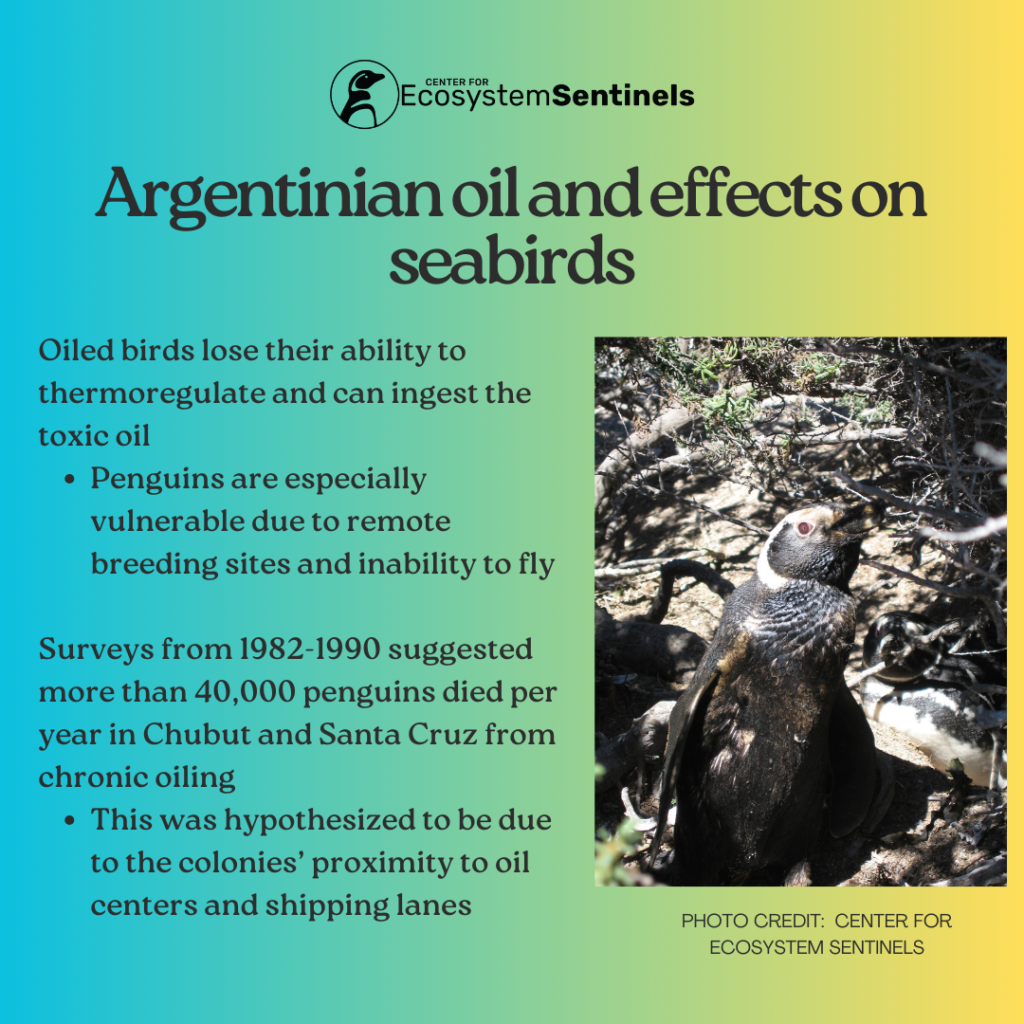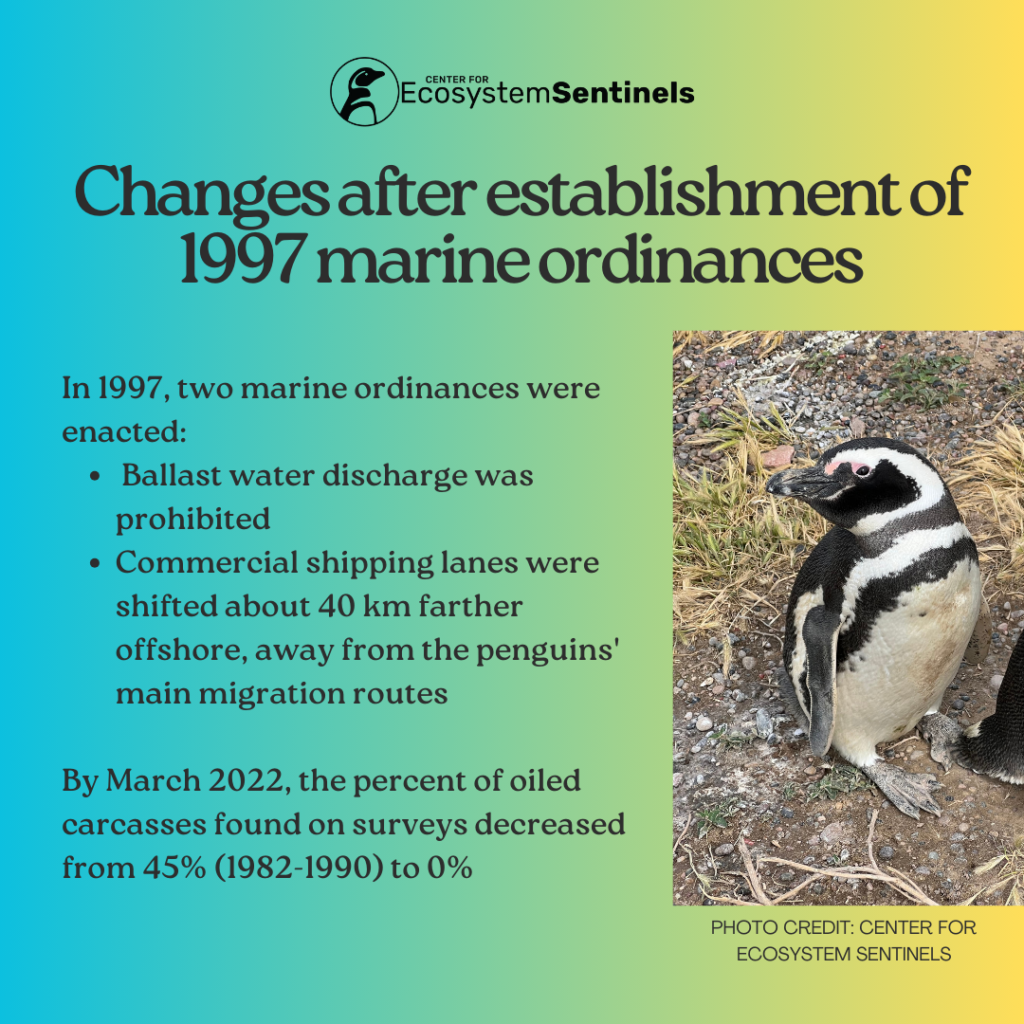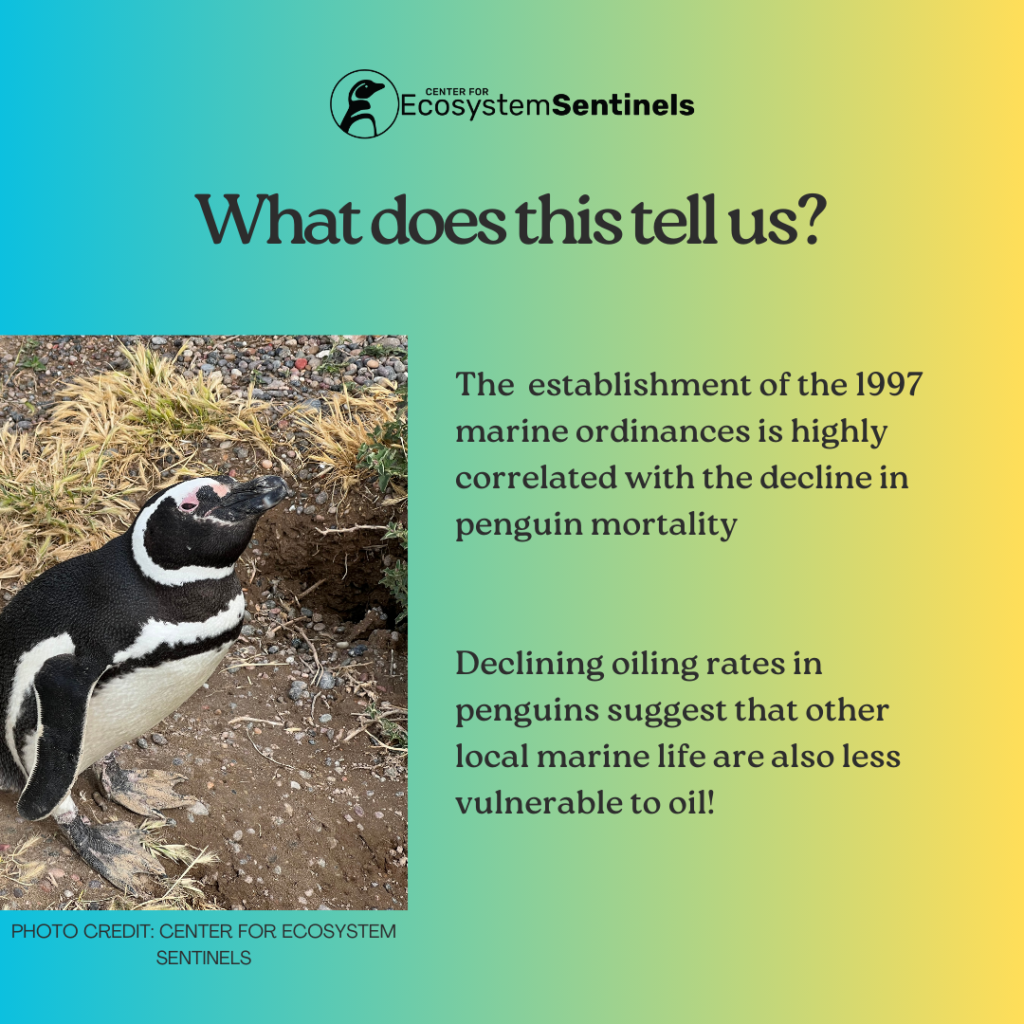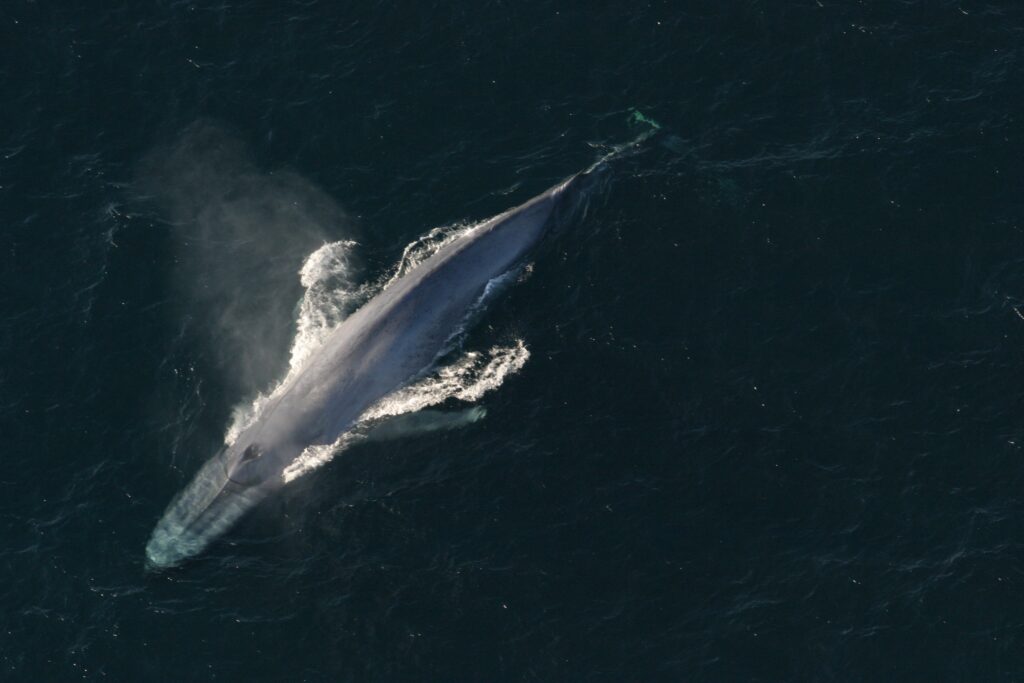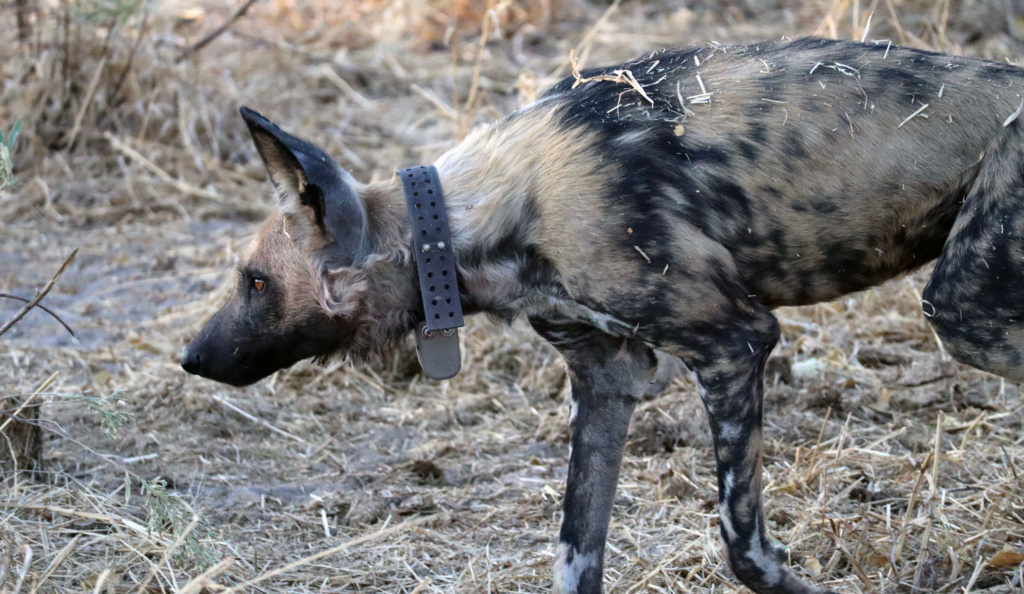Metadata
Authors: Eric L. Wagner, Esteban Frere, P. Dee Boersma
Journal: Marine Pollution Bulletin
DOI: 10.1016/j.marpolbul.2023.11
Summary
Summary written by Sofia Denkovski
Argentinian oil and effects on seabirds
Surveys from 1982-1990 suggested more than 40,000 penguins died per year in Chubut and Santa Cruz from chronic oiling. This was hypothesized to be due to the colonies’ proximity to oil centers and shipping lanes. Why is oil so bad for birds? Oiled birds lose their ability to thermoregulate and can ingest the toxic oil. Penguins are especially vulnerable due to remote breeding sites and inability to fly.
Changes after establishment of 1997 marine ordinances
In 1997, two marine ordinances were enacted:
- Ballast water discharge was prohibited
- Commercial shipping lanes were shifted about 40 km farther offshore, away from the penguins’ main migration routes
By March 2022, the percent of oiled carcasses found on surveys decreased from 45% (1982-1990) to 0%.
What does this tell us?
The establishment of the 1997 marine ordinances is highly correlated with the decline of penguin mortality. Declining oiling rates in penguins suggest that other local marine life are also less vulnerable to oil!
Wildlife is telling us the state of our planet. We listen. We take action.
Do you think we are conducting important research? Make a tax-deductible donation here.
